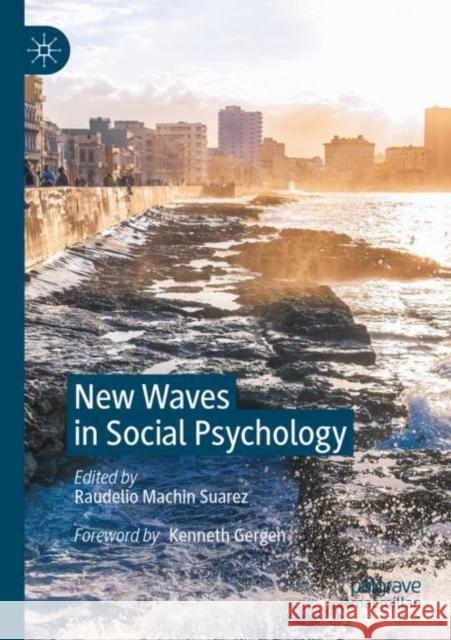New Waves in Social Psychology » książka
New Waves in Social Psychology
ISBN-13: 9783030874087 / Angielski / Miękka / 2023 / 258 str.
New Waves in Social Psychology
ISBN-13: 9783030874087 / Angielski / Miękka / 2023 / 258 str.
(netto: 573,71 VAT: 5%)
Najniższa cena z 30 dni: 578,30
ok. 22 dni roboczych.
Darmowa dostawa!
This book presents an update on social psychology as a disciplinary space and research field. First, it discusses the irruption of research methods from other cultural niches in the instituted academic area. Then, the second and third chapters discuss the role of Critical Psychology for community emancipation in hybrid settings and the development of Vygotsky's theory in Latin America. The fourth and fifth chapters offer some questions on contemporary legal and political culture. The sixth and seventh chapters ask how to reconceptualise the studies on Social Imaginary amd childhood. The eighth and ninth chapters present topics as performativity, cybernetic, subjectivities, and technology networks in health-related social support. In the last chapter, the author asks: are networks a cause of the human condition or a result of it? Is virtuality a condition and, at the same time, a result of the human? What could offer a psychoanalytic ethnographic approach to recover the concept of being human as the experience of intimate bonding as part of a social network?
This book presents an update on social psychology as a disciplinary space and research field. First, it discusses the irruption of research methods from other cultural niches in the instituted academic area. Then, the second and third chapters discuss the role of Critical Psychology for community emancipation in hybrid settings and the development of Vygotsky's theory in Latin America. The fourth and fifth chapters offer some questions on contemporary legal and political culture. The sixth and seventh chapters ask how to reconceptualise the studies on Social Imaginary amd childhood. The eighth and ninth chapters present topics as performativity, cybernetic, subjectivities, and technology networks in health-related social support. In the last chapter, the author asks: are networks a cause of the human condition or a result of it? Is virtuality a condition and, at the same time, a result of the human? What could offer a psychoanalytic ethnographic approach to recover the concept of being human as the experience of intimate bonding as part of a social network?











